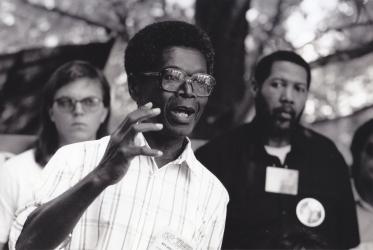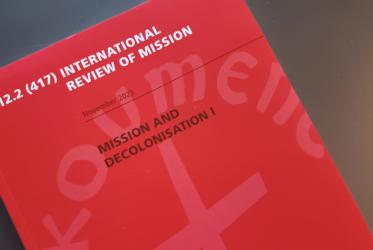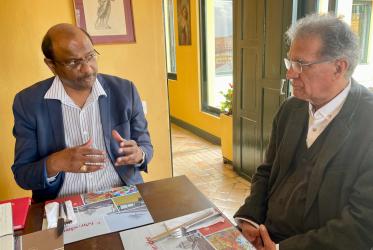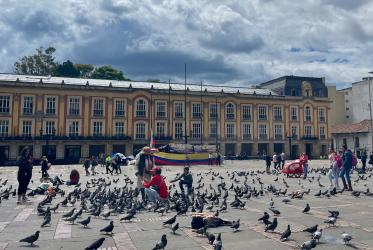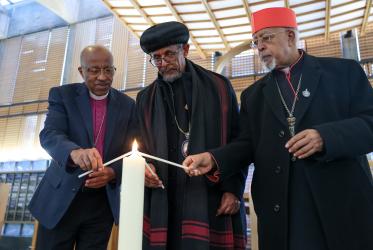Displaying 1 - 20 of 1059
Voice of churches vital during UN women’s rights talks
28 March 2024
WCC prayer on overcoming racism “based on love for all”
28 March 2024
In Angola, WCC takes human rights approach to obstetric fistula
01 February 2024
Young Black Europeans: “common witness has an open ear”
30 November 2023
Beginning soon: 16 Days against Sexual and Gender-Based Violence
21 November 2023
A Guide for Churches on the Prevention of Obstetric Fistula
26 October 2023








